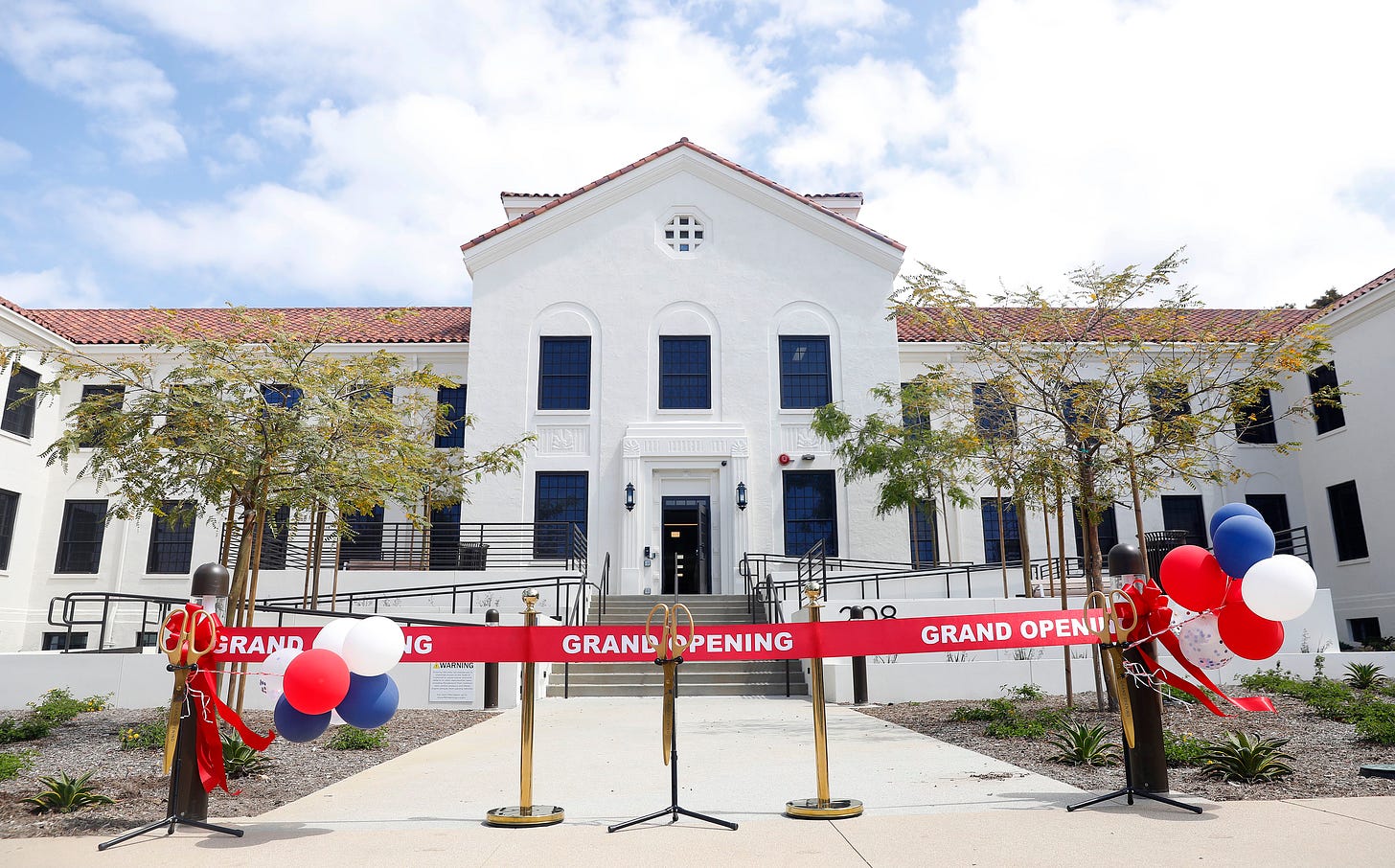Breaking: HUD changes policy that denied disabled veterans from housing
The policy change is central to claims in Powers v. McDonough and "will ensure that no veteran is denied housing assistance because of their service-connected disability benefits."

In a surprising about-face, today the the U.S. Department of Housing and Urban Development (HUD) announced a set of policy changes to ensure unhoused veterans are no longer denied supportive housing due to service-connected disability benefits.
Previously HUD had counted disability benefits paid to veterans as income, a practice that pushed them over thresholds and causing them to be ineligible for housing earmarked for veterans. The prior policy was central to claims in Powers v. McDonough, in which a group of disabled veterans are suing Veterans Affairs and HUD over housing discrimination and misuse of the 388-acre West Los Angeles VA property that was donated to the federal government in 1888 specifically to house disabled veterans.
“This policy change will ensure that veterans who are receiving the disability benefits they earned through service and sacrifice can access the housing assistance and supportive services they need to resolve their homelessness,” Acting Secretary Adrianne Todman said in a statement released this morning.
The rule change comes on the third day of the Powers trial, and one month after U.S. District Judge David O. Carter issued a summary judgement ruling that the VA has discriminated against veterans through its practice of leasing areas of the West LA VA campus to third-party developers who finance project-based housing developments through sources that require income restrictions for their residents. As a result, veterans who are more severely disabled (and therefore receive higher disability payments) were not allowed to live in on-campus housing closest to the medical facilities where they receive care.
“That third-party developers, not the VA, are the ones directly imposing the discriminatory conditions is of no consequence,” Carter wrote in his ruling. “Defendants cannot outsource discrimination.”
“NCHV is thankful to the Biden-Harris Administration for recognizing that the needs of homeless disabled veterans are not an urban myth,” said Kathryn Monet, Chief Executive Officer of the National Coalition for Homeless Veterans about the news out of HUD. “This long overdue policy change makes HUD-VASH vouchers more accessible to the most disabled homeless veterans, and we appreciate Acting Secretary Todman and Secretary McDonough’s leadership. We urge the Department of the Treasury to follow suit by quickly issuing guidance to stop discriminatory eligibility guidelines from limiting the types of affordable housing units veterans can access with their HUD-VASH vouchers.”
Watch: Long Lead takes the fight for veteran homelessness to D.C.
Last week, Kathryn Monet appeared in a panel discussion in Washington, D.C. hosted by Long Lead in which she, veteran advocate Rob Reynolds, Long Lead editor John Patrick Pullen, and moderator Steve Clemons discussed LA’s homeless crisis with a select group of invitees.
The event followed a screening of “The Promised Land,” a documentary film by Army veteran and director Rebecca Murga which is part of Home of the Brave, Long Lead’s multi-part, multimedia feature chronicling the controversial history of the West LA VA.
According to the statement by HUD, the department is expanding access to HUD-VASH for veterans by:
• Requiring public housing agencies (PHAs) that administer HUD-VASH to set the initial income eligibility for veterans at 80% of Area Median Income, rather than 50% of Area Median Income. The use of this higher initial income eligibility threshold is currently optional, but HUD is now making this increase mandatory.
• Adopting an alternative definition of annual income for applicants and participants of the HUD-VASH program that excludes veterans’ service-connected disability benefits when determining eligibility.
The policy changes also give PHA’s authority to:
• Make non-competitive awards of project-based HUD-VASH contracts to housing projects or units on VA facilities that serve HUD-VASH families;
• Approve Exception Payment Standards as a Reasonable Accommodations up to 140% of the Fair Market Rent;
• Set a separate minimum rent policy (including a zero minimum rent) for HUD-VASH participants.
While the changes appear to substantially change the outlook for unhoused veterans, issues in Powers v. McDonough remain, including whether the VA breached its fiduciary trust by leasing out parts of the West LA VA campus to outside interests. This is an argument veterans have made going back to the Vietnam war.
Another overarching issue yet to be decided at trial is whether permanent supportive housing is “necessary to ensure that Plaintiffs have ‘full and equal enjoyment’ of their healthcare benefits,” Carter wrote in his summary judgement issued last month.
As of this writing, proceedings for Powers v. McDonough for Thursday, August 8 are underway. On the trial’s third day, testimony will be heard from Ben Henwood, a social work professor at USC and an expert on housing and integrative support for homeless individuals.
Our daily coverage of the trial will resume tomorrow morning with a briefing of today’s proceedings.





